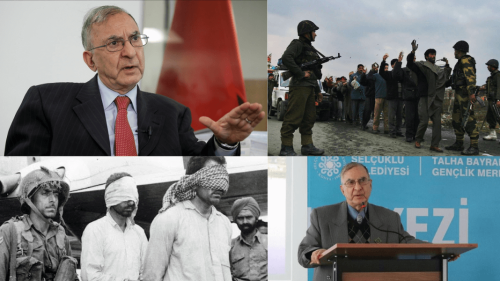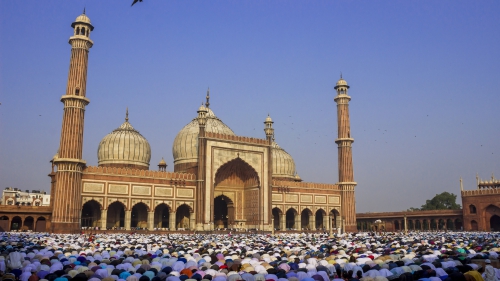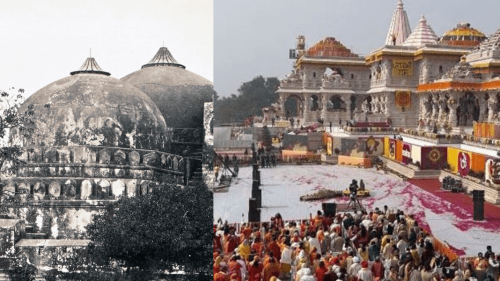Kashmir for the Kashmiris
The barbaric situation in Bosnia and Kosovo has outraged the world and caused regrets that the enormous toll of human lives was not averted by timely action at an earlier stage. The failure of the international community can be explained but not denied. Yet in another part of the globe - the Indian-held Kashmir - atrocities of a similar pattern have been, and are being, perpetrated with no fear of a corrective international response. To date, no one power or combination of powers has blown the whistle.
The escalation of fighting in the Kargil region of Kashmir is deplorable and especially its toll on innocent civilian lives and human rights. The real fire behind this escalation is emphatically not a religiously inspired crusade of Afghan-trained Islamic militants against Hindus. Quarreling over a few squadrons of infiltrators into Kashmir or the metes and bounds of the cease-fire line are mere sideshows to treating the root cause of the intensifying conflict. The conflict that has persisted for more than half a century is attributable to India's illegal denial of Kashmiri self-determination and human rights atrocities as chilling as those recently witnessed in Kosovo. Before the latest fighting erupted and occasioned India's use of bombers, helicopter gun ships, and artillery, it had already deployed 700,000 military and paramilitary forces in Kashmir. Why such a massive presence if Kashmir was then tranquil and resigned to India's military rule? Kashmir has been chronically convulsed since October 26, 1947 when India illegally dispatched troops there to prop up the illegitimate rule of a repressive Hindu maharaja. India apostatized from its international and the United Nations obligations when it recognized that its popularity in Kashmir resembled the current enthusiasm in Kosovo for Yugoslav President Slobodan Milosevic. It contrived countless excuses for resisting a referendum, and then dropped all pretenses with an ex cathedra announcement that Kashmir had become as much a part of India as Calcutta or Bombay or New Delhi.
Kashmir will remain the most dangerous nuclear hotspot on the planet, in the words of former United States Secretary of Defense William Perry, until its right to self-determination is honored. It is indigenous bitterness and resentment that overwhelmingly fuels Kashmir's resistance to India's iron-fisted military occupation earmarked by extrajudicial killings, rape, torture, kidnapings, plunder, arbitrary detentions, and ruthless suppression of free speech and political liberties.
The Kashmir conflict is not a bilateral territorial quarrel between India and Pakistan. Neither is it about drawing international borders, nuclear proliferation, infiltration by Muslim guerillas, or opening borders, promoting cultural exchanges, or lowering barriers to free trade in South Asia. It is about the rights and liberties of 13 million people of Kashmir.
In recent days, there have been different people coming up with different possible solutions. First of all regarding solution, I would rule out one thing and that is doing nothing. Because time is not on the side of Kashmiris. Time will never heal this problem. Time has made the things worst in Kashmir. One such so called solution is being suggested to convert the existing cease-fire line into a permanent international boundary. This is the ideal non-solution. One cannot imagine a better formula for sowing a minefield in South Asia than this that will lead them to a nuclear disaster. Secondly, to turn the cease-fire line in Kashmir into a formal international border would both reward India's international law villainy and exacerbate popular wrath and endemic strife in Kashmir. There is but one fair and just procedure to the Kashmir conflict that will set the stage for a democratic and peaceful solution, i.e., tripartite negotiations between the Governments of India and Pakistan and the legitimate leadership of the people of Kashmir. It is obvious that no settlement can last if it is not based on justice for the people of Kashmir and recognition of their inherent rights.
Isn't it time to explore a pragmatic formula to resolve more than 50 years of international illegality, conflict, and human rights violations in Kashmir? Isn't it time to recognize that no bilateral India-Pakistan formula that excludes the direct participation of the legitimate Kashmiri leadership could possibly succeed? Isn't it time to fashion a final dispensation for Kashmir that answers the legitimate concerns of both India and Pakistan while honoring longstanding self-determination pledges agreed by both India and Pakistan, negotiated by the United Nations Security Council and endorsed by the world community?
We, Kashmiri Americans believe that initiation of a political dialogue between the Kashmiri leadership and the Governments of India and Pakistan will set the stage for a democratic and peaceful solution.
The United States government should realize it is implausible that India and Pakistan will either cap or renounce their respective nuclear genies after they have escaped the South Asian bottle unless the chief source of antagonism between the two -- Kashmir -- is resolved. It is obvious that no settlement can last if it is not based on justice for the people of Kashmir and recognition of their inherent rights.
To reach a final solution, the Governments of India and Pakistan should include the Kashmiri leadership with the peace process; and should a stalemate arise, both countries should be willing to invite or accept the mediation by an impartial and neutral international agency. As Northern Ireland required the participation of Sinn Fein in negotiations to succeed, Kashmir is no different.
Furthermore, President Bush should appoint a Special Envoy on Kashmir, a person of an international standing like Nelson Mandela or President Carter or Lady Thatcher.
The United States can initiate an intra-Kashmiri dialogue at a location outside South Asia with the participation of the leadership of the All Parties Hurriyet Conference (APHC) and the leadership of other segments of Kashmiri society. The Indian government must be persuaded to issue travel documents to the leaders of the APHC.
________________________________
Dr. Ghulam Nabi Fai is executive director of the Kashmiri American Council.

















